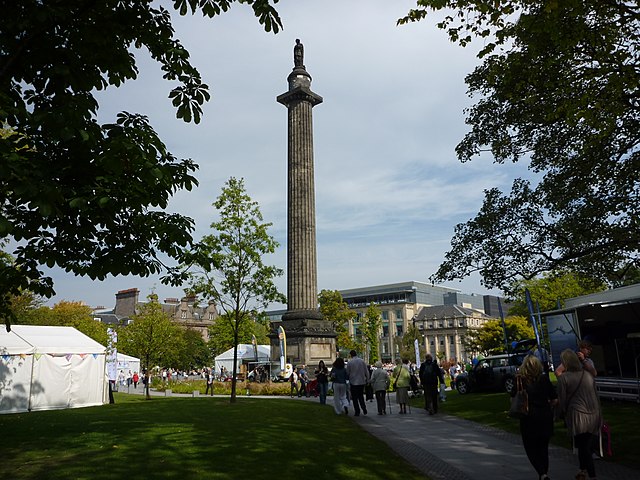
Stephen Mullen
Missed Part 1 and 2? Read them here!
Part 1
Part 2
The Scottish Historical Review was the natural home for this article: based upon a Scot’s actions in parliamentary debates in the House of Commons and his role in a wider Government strategy, which had catastrophic consequences across the Atlantic world.
Indeed, the choice of journal proved to be a wise decision in terms of relevant expertise and modern policies around access. The peer reviews were amongst the most thorough I have ever received, and close to publications in their own right. The research and subsequent article have been presented at high-profile academic events with immediate impact.
I presented an abbreviated version at ‘Historians on Dundas and Slavery’ (University of Edinburgh, online event, July 2020). The Scottish Historical Review accepted my article for publication in February 2021. In late March 2021, journalist David Leask reported on the article’s acceptance. I provided commentary and quoted the published work of historian Roger Buckley and – as is standard academic practice – credited him within the text. In accordance with Edinburgh University Press policy, the accepted pre-publication version of my article was made available (Open Access) via my University of Glasgow biography in early May 2021. This version was subsequently cited by the Canadian city of Toronto council’s ‘Recognition Review’ on 31 May 2021, which was then undertaking an investigation of Henry Dundas’ role (and resulted in a commitment to rename Dundas Street in downtown Toronto in July 2021). The final article was published in August 2021 and was selected as the SHR ‘Featured Article’ which ensured a broad readership. In October 2021, I appeared at a Q&A (and provided a blog) for the Institute of Historical Research ‘Parliaments, Politics and People’ seminar series during which my approach and arguments were endorsed by many leading British parliamentary historians.
The controversy around Henry Dundas and gradual abolition might be used as a case study of the public history of memorialisation and historical reputations, focusing on the role of academic scholarship informing wider debates. My article provides a comprehensive bibliography of classic and modern historiography, as well as the work of biographers, which addresses Dundas’ role during ‘gradual abolition’. The wider debate around the memorialisation was covered in a televised debate on Channel 4 News in 2018. Parisa Urquhart’s BAFTA-nominated ‘Scotland, Slavery and Statues’ covered the debates in more detail and aired on BBC Scotland in October 2020. How Dundas has been represented in historiography and biographies can be compared with two iterations of plaques placed upon the Melville Monument (previous version; and new version after October 2021). Historiographical positions can also be compared with journalistic commentary by biographer Michael Fry, as well as academic historians Brian Young and T.M. Devine. Indeed, in The Times in October 2020, Professor Devine described Edinburgh City Council’s wording of the new plaque on the Melville Monument as ‘bad history’.
Comparing academic scholarship on Henry Dundas, with how he has been memorialised, raises questions as to the role of historiography in the debates over historical reputations. What is most important in the decision-making by politicians in the memorialisation of individuals implicated in colonialism? Substantiated arguments in peer-reviewed journals and scholarly publications; the works of biographers; journalistic commentary; activist campaigns; or the views of the general public and wider stakeholders. This debate centered on the activities of a late-eighteenth-century Scottish politician, although this was a thoroughly modern process that played out in print and broadcast media and other digital platforms. I am pleased to have added my substantiated opinion in the Scottish Historical Review: one of the nation’s leading peer-reviewed outlets which has continued relevance in the digital era.

There are two final ironies in an era of controversy around British statuary and memorialisation practices. The activist position (that Henry Dundas delayed abolition) is not one based upon ‘rewriting history’ but the arguments are broadly consistent with the published work of academic historians going back to 1975. Secondly, in an era when activists are often accused of arbitrarily removing statues from civic space across Great Britain, Sir Geoff Palmer, leading critic of Henry Dundas, has argued that statues, including the Melville Monument, must remain as ‘we cannot remove history from its context’.
About the author
Dr Stephen Mullen is a historian of slavery and its aftermath in the British Atlantic world, with a particular focus on Scotland and the Caribbean. He is an alumnus of the Universities of Strathclyde and Glasgow, completing a Ph.D. at the latter institution in 2015. Since then, he has been a Postdoctoral Researcher and Lecturer in History at the University of Glasgow. Stephen’s research has focused on the social and economic consequences of Atlantic slavery in a British-Atlantic framework. He was a Postdoctoral Researcher on the Leverhulme project ‘Runaway Slaves in Britain: bondage, freedom and race in the eighteenth century’, and the principal researcher and co-author of the report ‘Slavery, Abolition and the University of Glasgow’ (2018), which led to the sector-leading Reparative Justice strategy. A monograph, The Glasgow Sugar Aristocracy: Scotland and Caribbean Slavery, 1775-1838, is forthcoming with the Royal Historical Society/Institute of Historical Research flagship series New Historical Perspectives published by University of London Press.




